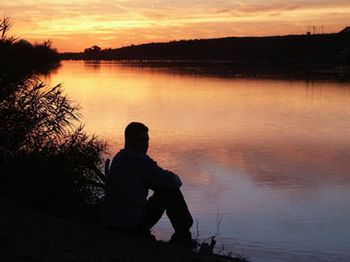
In 2010, I lived in Chile for 9 months. It was a memorable time in my life. I lived through one of the country’s worst earthquakes. I went through transitions professionally and romantically. I caught a glimpse at bilingualism in the distance.
There are many countries I have yet to visit, countries still on the bucket list. But I still prioritize visiting Chile to deepen an already deep experience.
In 2012, I returned and wrote a piece titled The Sweep of Nostalgia and quoted Joan Didion’s advice — remain on nodding terms with your past. I still believe in that advice — at least being able to nod at selective elements of your past. Staying in touch with Chile is part of that process.
I visited Chile again a couple weeks ago — a 2018 visit. Returning to a place you once knew well shakes loose old memories, like dusty old photo frames that tumble down off shelves if you open a cabinet door that’s been shut for some time. The memories are not necessarily significant. Random stores. Random streets. Random metro stops. “Oh yeah, that thing” is a routine thought during these occurrences. Not profound. Unless you consider it profound that our brains store a gazillion memories that are not bubbling at the surface and need active prompting to surface — and that is kind of profound if you think about it.
One of the more touching moments on my latest visit happened at my old apartment building. I went back to the building in the Providencia neighborhood. I told the doorman I used to live in the building some years ago, and asked if he’d let me enter to take the elevator to the roof and look out. After a bit of mental jogging, he said, “I remember you!” I stared at him and then remembered him as well. Same guy working the door after all these years. Some things really don’t change very much.
The subway is still excellent (and my transit card from 2010 that I’ve held onto still had value on it!). The andes mountains are still beautiful. The Chilean friends I made all still live in Santiago — no one has moved away.
Of course some things do change in a decade’s time. For example, everyone in Santiago has a smartphone now. I lived there pre-iPhone. Had I an iPhone and data plan in 2009, I would not have gotten lost nearly as often. I wonder how my experience would have been different had I nailed every turn-by-turn…
Mainly, the feeling I get when I think about my time in Chile is about how much time has passed in my life. I’m older now; I look much older in photos today versus my photos from then. So much has happened in my life since then. I do feel a tinge of sadness thinking about it. When I lived in Chile, I was in my early 20’s, living abroad, with so much possibility in front of me. So little constraint. I live a far more constrained life today. All by choice and I’m happy with my choices, but enough years have piled up now where I can look back and draw out multi-year detailed maps for how my life could have gone had I made different choices at different juncture points.
#
I should note a few practical things my partner and I did on the most recent trip to Chile. Agua de Ramon park is wonderful and just 20 mins from uptown Santiago. The new Costanera Center tower is cool — the tallest building in Latin America. A sunset drink atop the W Hotel offers remarkable views. And the Ritz Carlton Santiago is a wonderful hotel; the club lounge is very much worth upgrading for — 3 meals a day served there and they’re exceptional. I worked full time from the hotel so it was a good location to do that from.
#
I’ll repeat the ending from my previous post on Chile:
Some months ago, I watched saw the beautiful documentary Nostalgia for the Light. It’s about the astronomy done in the Atacama desert in the very north of Chile. Here’s the trailer. The Atacama desert is the driest in the world and the only place on earth with zero humidity year-round. Soon, 95% of the world’s astronomy will be done there. The film juxtaposes the work of scientists in the desert who look to the sky for answers, with old women just miles away who look to the ground for answers, searching for the bones of relatives assassinated by the Pinochet regime and buried in the desert. The film is about the connection between the past and the future, ground and sky. It’s also about memory.
In the film, director and narrator Patricio Guzman says, “Those who have a memory are able to live in the fragile present moment. Those who have none, don’t live anywhere.”
 Joan Didion once advised you remain on nodding terms with your past. I returned to Chile last week to do just that.
Joan Didion once advised you remain on nodding terms with your past. I returned to Chile last week to do just that.

